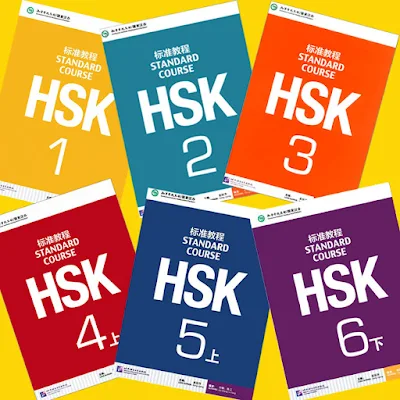 |
| Keats School Blog |
HSK is defined by the Chinese Learning Center as:
HSK (Hanyu Shuiping Kaoshi) or the Chinese Proficiency Test is an international standardized exam which tests and rates Chinese language proficiency. It assesses non-native Chinese speakers' abilities in using the Chinese language in their daily, academic and professional lives. HSK test was developed in 1984 and the first HSK test was held overseas in 1991. Since then, the Chinese testing centers have spread all over domestic and foreign lands.
It was in 1984 when it was developed but what caused Chinese schools in the Philipines to miss this out? Was it because of some old-school Chinese Filipino boomers who felt that their learning methods since "time immemorial" were using those old annoying textbooks? I could really say that I hated memorizing bon toi (question and answer) and doing biak diam (memorized recitation) when English was hardly spoken. It required people to learn Hokkien and not every person in the class fluently spoke Hokkien.
Here are the levels of the HSK which I copied and pasted from the Chinese Learning Center which has six levels that I treat like Grade 1 to Grade 6:
HSK (Level I)
Test takers can understand and use very simple Chinese phrases, meet basic needs for communication and possess the ability to further their Chinese language studies.
HSK (Level II)
Test takers have an excellent grasp of basic Chinese and can communicate in simple and routine tasks requiring a simple and direct exchange of information on familiar and routine matters.
HSK (Level III)
Test takers can communicate in Chinese at a basic level in their daily, academic and professional lives. They can manage most communication in Chinese when travelling in China.
HSK (Level IV)
Test takers can converse in Chinese on a wide range of topics and are able to communicate fluently with native Chinese speakers.
HSK (Level V)
Test takers can read Chinese newspapers and magazines, enjoy Chinese films and plays, and give a full-length speech in Chinese.
HSK (Level VI)
Test takers can easily comprehend written and spoken information in Chinese and can effectively express themselves in Chinese, both orally and on paper.
The big problem with those old annoying textbooks is that they never taught people to speak, just how to memorize. If the only reward for memorizing biak diam and bon toi was to avoid getting pa (spanked) by the siansi (teacher) with a ruler-it's not really learning. It's not enough that teachers should balance strictness and compassion. What's the use of a teacher who balances both when there was no learning? I even feel hollow whenever I pass a level without learning how to speak. Right now, I feel like a lot of people who even graduated Chinese before, had their diplomas, may even need to go back to HSK (Level I) because they memorized the bon tois and biak diams without understanding. I even feel I should've never reached Grade 6 (and never got my diploma either) because I never got to the point where I could easily comprehend written and spoken information in Chinese!
Education should be graded based on learning, not grades alone. Until now, I can't get over that I decided to write about how grades over learning has caused cheating to increase even more. Sure, the siansis aren't wrong to crumple test papers when one is caught doing tao kua (cheating) but those disciplinary measures aren't enough. Sometimes, I feel I learned better whenever my weekly Chinese report card was full of bloody marks than not in high school. Chinese should focus on grading people based on what each HSK level has and focus on a balance of memorization and understanding.